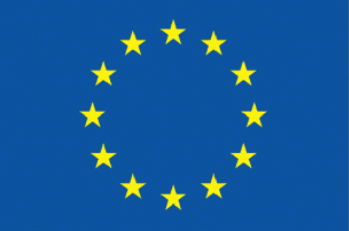
Permanent Structured Cooperation (PESCO)
Deepen defence cooperation between EU Member States


























Permanent Structured Cooperation (PESCO)
Deepen defence cooperation between EU Member States


























PESCO PARTICIPATING MEMBER STATES
 Belgium
Belgium Bulgaria
Bulgaria Czech Republic
Czech Republic Denmark
Denmark Germany
Germany
 Estonia
Estonia Ireland
Ireland Greece
Greece Spain
Spain France
France
 Croatia
Croatia Italy
Italy Cyprus
Cyprus Latvia
Latvia Lithuania
Lithuania
 Luxembourg
Luxembourg Hungary
Hungary Netherlands
Netherlands Austria
Austria Poland
Poland
 Portugal
Portugal Romania
Romania Slovenia
Slovenia Slovakia
Slovakia Finland
Finland Sweden
Sweden
SCOPE AND AMBITION
- Collaboration between participating EU Member States will be gradually shifted from isolated projects towards planned and impact-based cooperation activities with the objective to establish a more coherent European capability landscape. It is a framework and a structured process to gradually deepen defence cooperation to deliver the required capabilities to also undertake the most demanding missions and thereby provide an improved security to EU citizens.
- PESCO projects reflect both support for capability development and the provision of substantial support within means and capabilities to Common Security and Defence Policy operations and missions. Therefore, PESCO project proposals are thoroughly assessed by the PESCO secretariat in both aspects, from the capability perspective as well as the operational view.
- PESCO complements two other important current initiatives: the European Defence Fund, which will support certain collaborative projects financially, and the Coordinated Annual Review on Defence (CARD) which supports Member States’ efforts to better identify opportunities for new collaborative initiatives (in particular PESCO projects). The coherence of these initiatives with PESCO and their orientation towards the agreed EU Capability Development Priorities is key to focus the new dynamic in European defence matters towards a more coherent European capability landscape and a full spectrum force package usable for operations and missions.
LEGAL BASIS
The possibility for Member States to engage – on a voluntary basis – in Permanent Structured Cooperation (PESCO) in the area of security and defence was introduced by article 42(6) of the Lisbon Treaty on European Union (TEU) which provides that “those Member States whose military capabilities fulfil higher criteria and which have made more binding commitments to one another in this area with a view to the most demanding missions shall establish permanent structured cooperation within the Union framework”. Protocol N°10 on PESCO, annexed to the Lisbon Treaty, stipulates that PESCO is open to any Member States which has higher capacities and undertakes to intensively develop defence capacities through the development of national contributions and their participation in multinational forces, in the main European equipment programmes and in the activities of the EDA in the field of defence capabilities development, research, acquisition and armaments.
The European Council on 22/23 June 2017 agreed “on the need to launch an inclusive and ambitious Permanent Structured Cooperation (PESCO)” to strengthen Europe’s security and defence and to help reach the level of ambition of the EU expressed in the EU Global Strategy published in 2016.
On 13 November 2017 ministers from 23 Member States signed a joint notification on PESCO and handed it over to the High Representative and the Council. Two additional Member States joined them on 7 December 2017. The joint notification set out the principles of PESCO, the list of ambitious and more binding common commitments the Member States agreed to undertake as well as proposals on PESCO governance. Among the PESCO principles agreed by participating Member States is that it should serves as “an ambitious, binding and inclusive European legal framework for investments in the security and defence of the EU’s territory and its citizens”. Participating Member States also “consider an inclusive PESCO as the most important instrument to foster common security and defence in an area where more coherence, continuity, coordination and collaboration are needed”.
On 11 December 2017, Council decision (CFSP) 2017/2315 of 11 December 2017 formally established PESCO with 25 Member States participating. It allows willing and able member states to jointly plan, develop and invest in shared capability projects, and enhance the operational readiness and contribution of their armed forces. The ultimate objective is to optimize the available resources and improve their overall effectiveness, with a view to the most demanding missions and operations and contributing to the fulfilment of the Union level of ambition.
The key difference between PESCO and other forms of cooperation is the legally binding nature of the commitments undertaken by the participating Member States. The decision to participate was made voluntarily by each participating Member State, and decision-making will remain in the hands of the participating Member States in the Council. This is without prejudice to the specific character of the security and defence policy of certain EU Member States.
On 23 May 2023, Council decision (CFSP) 2023/1015 of 23 May 2023 formally confirmed the participation of Denmark in PESCO, determining the list of the participating Member States to 26.
